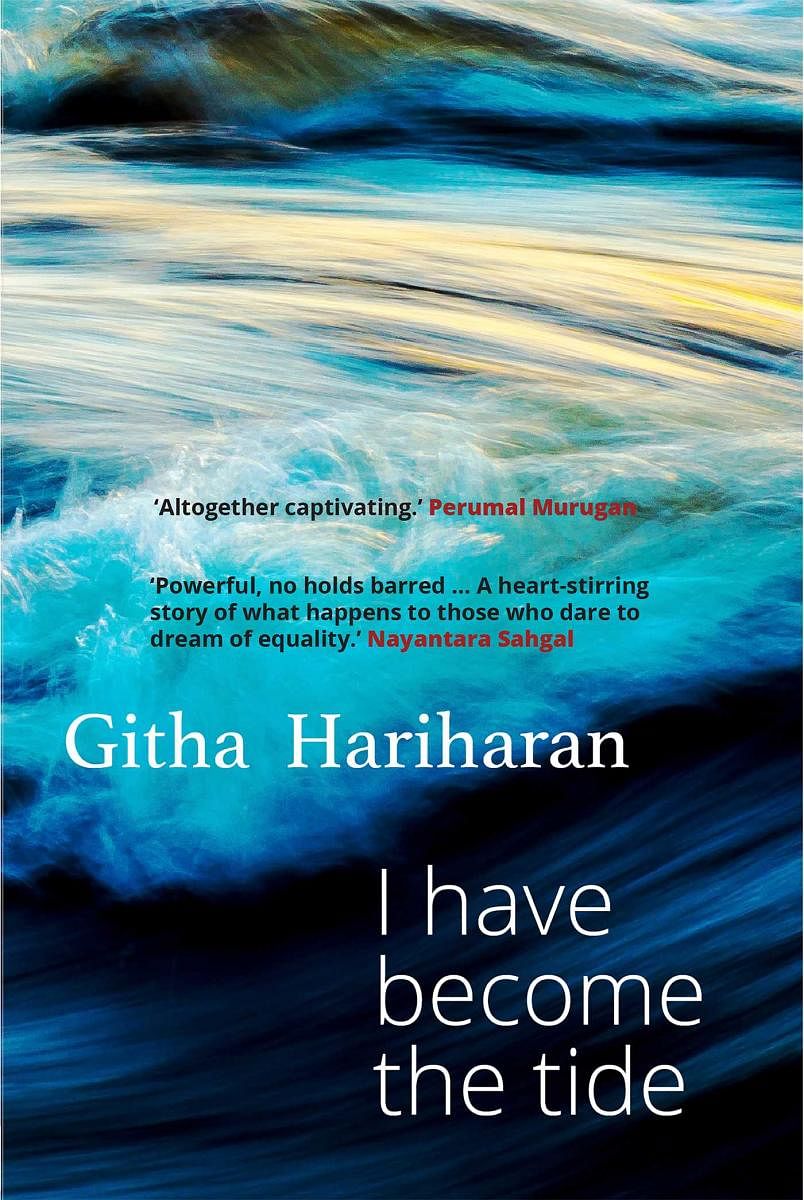
Once upon a time, the upper castes enjoyed “respect” from everyone else, and now, in the Kaliyuga, they are burning with anger that they no longer do so, and are ready to murder to get that respect back.
Githa Hariharan’s I Have Become the Tide tells three stories in exploration of connection between the goal of respect and the countless massacres and killings that continue till date. It is a compassionate portrayal of this connection measured across different times. The emerging picture is counter-intuitive: with all the affirmative action policies we have today, things are worse. Going by the definition of the Kaliyuga, a time when respect is not a birthright or a legacy, Kaliyuga is yet to arrive.
Kannappa-Kannadeva is a saint poet revered by the Hindus. Professor Krishna argues in his edition of the saint’s oeuvre that the poetry attributed to him, in reality, comes from the poet’s father, Chikkiah, a tanner-turned-washerman, and mother Mahadevi, and several other people from Anandagrama, a place that had a community resisting the upper castes’ domination hundreds of years ago. This new argument scandalises the upper caste Hindus, but gives hope and courage to college students suffering humiliation as “quota people”.
Hariharan elegantly binds the stories of the poet, the scholar, and the students together, linking them with the intrinsic nature of power pretending to be “respect”, its bloodthirsty ways of suppression, and the tenacious fights against it fought by those drunk on the “heady brew called equality”.
The result is a story about all stories because to know one is to know them all. A story about caste is about recurring tropes of indignity of life, and demeaning of what one is forced to do in order to earn a livelihood.
In such a story, a better death qualifies as progress from father to son. This novel is a testimony to the fact that even after so many centuries, we have failed to provide better ways of dying to the ones we want dead. If anything, we have only made things easier for ourselves. “Their” best bet is suicide — just deny them their scholarship money and they will do the rest. If this instance sounds familiar (and there are many more), it is because Hariharan’s novel is reality masquerading as fiction. She opens with, “Much of the novel may bear resemblance to reality, both past and present.”
Chikkiah, in another age, sings: “In a past life I was untouchable. In a past life they smelt my shadow and fled. In a past life the meat I ate was rotten. In a past life I bathed in a stagnant pond. That was the past. Tie me, tether me so I don’t stray there again. Keep me here, in current and whirlpool, O river of a thousand faces.”
The news headlines Hariharan brings together from our times are not very different: “Pregnant Dalit woman killed for touching upper caste woman’s bucket”, or “Dalit men tied to tree, thrashed by landlord for stealing fan”, or “Seventeen-year-old Dalit attacked for sporting a moustache.”
This weaving together of different time spans requires an empathy of different kind. The song from Anandagrama goes: “Where is that land where water flows free?” while the student-poet of our time writes: “The field where my ancestors worked till they dropped dead, turned to earth. Why does it call me every night, the field I have left behind?” While the answer to the previous question is: “In me the land where water flows free”, there is none for modern misery. In other words, Kaliyuga is yet to arrive.
One might resist the temptation to conclude that I Have Become the Tide is one of those narratives wallowing in sympathy and playing the card of victimhood to make a point about “them”.
Hariharan is aware that anyone privileged can ever ‘know’ the lived experience of those who have been historically oppressed”. This awareness is nuanced with a significant difference in her storytelling. In using devotional poetry as a contentious issue in the novel, she accomplishes two things. One, she destabilises the notion that poetry and devotion are a domain of the powerful. Two, she lets these tropes make space for a different discourse about the oppressed in saying that the oppressed need not always be associated with passivity. Voice, and thereby poetry, are effective strategies of articulation and pride — something they have largely been denied by those who have always “celebrated” them as the oppressed.
Hariharan avoids the binaries of the killers and the killed: these are not homogenous groups to be pitted against each other. The killers kill their own when they try to become a bridge between themselves and “them”. These bridges are perhaps scarier than their obvious enemies across the caste lines. Kaliyuga will arrive when these lines will no longer exist. It will arrive when one story will not do for all the stories.